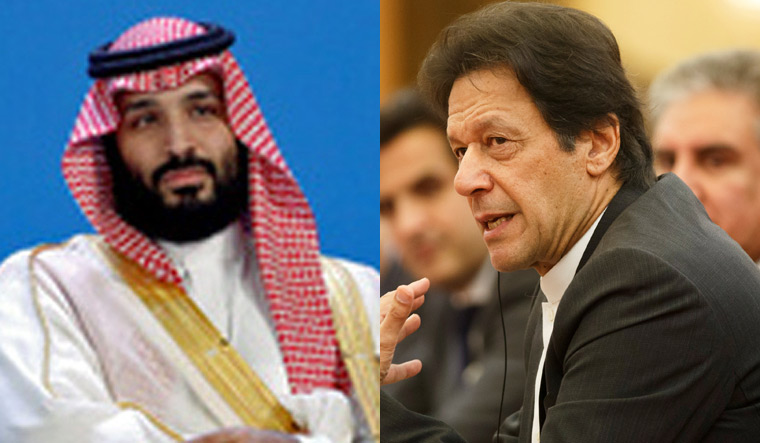
Pakistan recently hosted the 17th extraordinary session of the Organisation of Islamic Cooperation Council (OIC) attended by foreign ministers of 57 Muslim-majority nations and 70 observer delegations from US, China, Russia, EU, and the UN.
The ostensible aim of the conference was to save Afghanistan from an impending humanitarian crisis and there was a consensus on coming up with a mechanism for providing aid. However, what was also publicly visible is how far apart Pakistan and its traditional ideological ally, the Saudi Arabia, are on issues.
Pakistan’s offer to host the summit was an attempt to reignite the lukewarm relations with Saudi Arabia but it appears instead to have created more friction. At the summit, Saudi Arabia wanted to highlight the role and responsibility of the Taliban regime in restoring peace and stability in Afghanistan. Prime Minister Imran Khan, however, was keen to use the summit to blame the crisis on non-recognition of the Taliban regime and freezing of Afghan funds ($ 10 billion) deposited overseas.
Prime Minister Imran Khan wanted to use the OIC summit to grant recognition to the Afghan Taliban which the Saudis were not in favor of. Furthermore, Pakistan wanted to add a line in the declaration that the OIC had agreed to establish a Contact Group on Afghanistan, which again Saudis were against.
It is interesting that a few days before the OIC summit, Taliban Chief Spokesman Zahidullah Mujahid called upon members of the OIC to recognize the Taliban-led government. Pakistan even invited a Taliban representative to the OIC extraordinary summit though Saudi Arabia and others ensured that the Taliban representative was not part of the final photo of the OIC attendees.
In the past, Pakistani governments have used the OIC summits to boost Pakistan’s image and to demonstrate close links between Saudi Arabia and Pakistan. This worked in the 1970s and in the 1990s but appears difficult today.
Over the last few years, while Saudi Arabia has come in as the lender of last resort and bolstered Pakistan’s flailing economy through last minute loans, the Kingdom has also publicly expressed disagreement with certain policies adopted by Pakistan. In October 2021, Saudi Arabia deposited $ 3 billion in Pakistan’s central bank to shore up the country’s foreign reserves and an additional $ 1.2 billion worth of oil derivates.
Despite Saudi Arabia supporting Pakistan at critical junctures, Pakistan appears determined to poke the Saudis in the eye through gestures that wary from refusing to support the Saudis in Syria or Yemen or adopt a stronger position vis-à-vis Iran.
Even on the domestic front, Saudi Arabia has clamped down on religious radicals and even groups like Tableeghi Jamaat are banned in Saudi Arabia. However, just recently Punjab Assembly passed a resolution in support of the Tableeghi Jamaat. According to a resolution moved by PML-Q’s Khadija Umar “The Tableeghi Jamaat is apolitical, engaged in preaching of Islam and has no connection with terrorism acts.”
Saudi Arabia may have been one of three countries, along with Pakistan, that recognized the Taliban regime in the 1990s. But the Kingdom has come a long way since then, while Pakistan appears to be stuck where it was.
![]()





